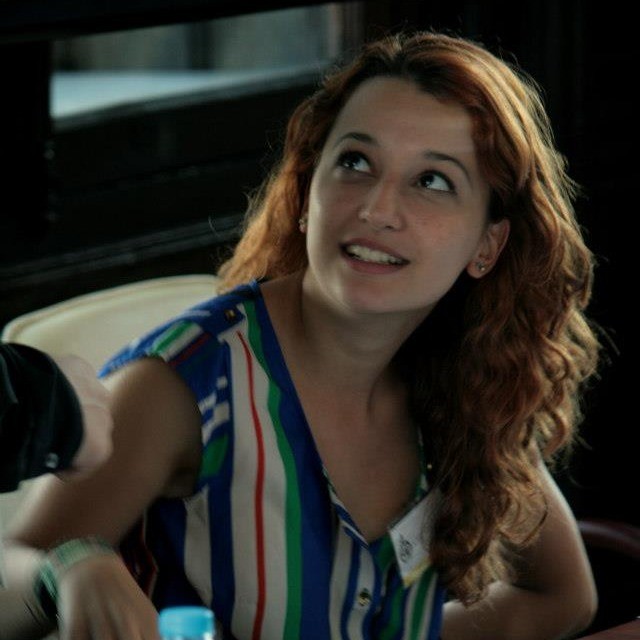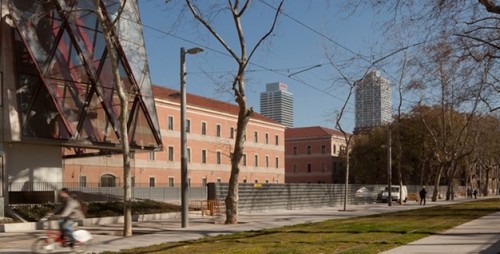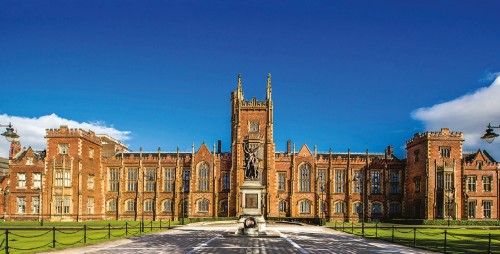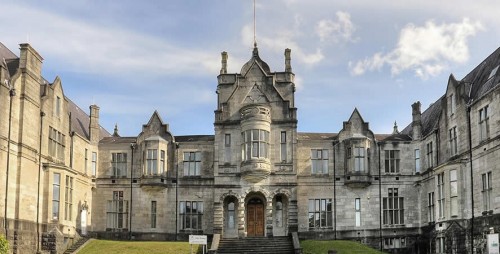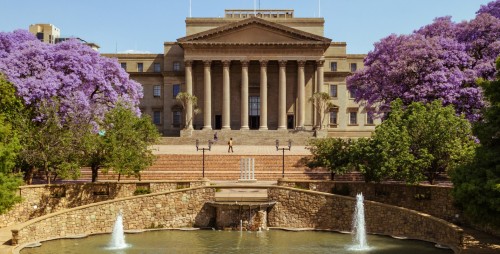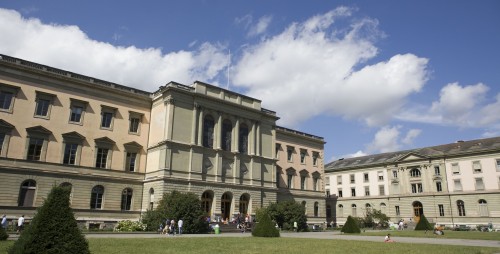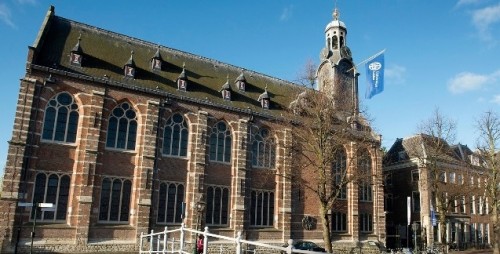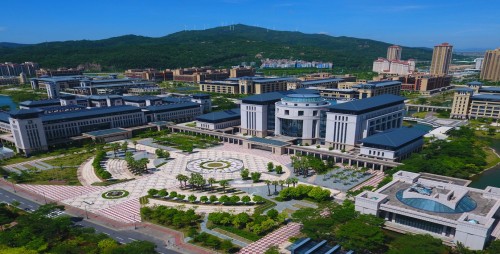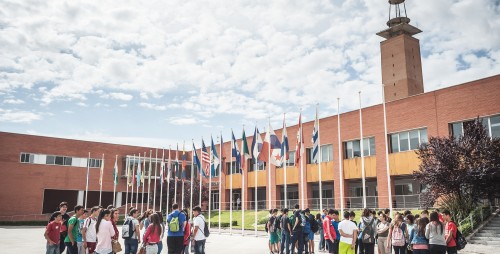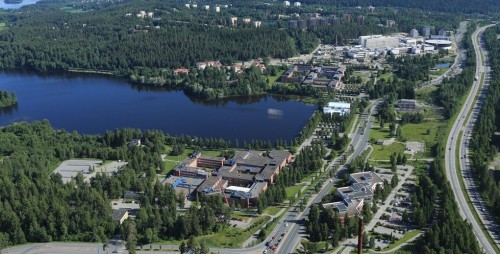Content:
Research strengths include: literary translation and reception; translation history; translation stylistics; corpus-based translation studies; translation and language change; adaptation; gender issues in translation; news translation; collaborative and self-translation; intercultural pragmatics; interpreting studies.
Duration: Full time-3 years
Requirements:
- Applicants for a PhD will also need to hold a Masters qualification at Merit level or above (or its international equivalent), usually in a relevant area.
Any academic and professional qualifications or relevant professional experience you may have are normally taken into account, and in some cases, form an integral part of the entrance requirements.
If you are applying for distance learning research programmes, you will also be required to demonstrate that you have the time, commitment, facilities and experience to study by distance learning.
If your qualifications are non-standard or different from the entry requirements stated here, please contact the admissions tutor.
International students
We accept a range of qualifications from different countries - use our handy guide below to see what qualifications we accept from your country.
Further Info: https://www.birmingham.ac.uk/postgraduate/courses/research/lang/translation-studies-languages.aspx
Content:
PhD Translation and Intercultural Studies programme will enable you to carry out a significant piece of original research under the supervision of our academics.
The Centre for Translation and Intercultural Studies (CTIS) at Manchester has the largest concentration of translation studies specialists in the country. It attracts visiting scholars and postgraduate students from a wide range of countries and backgrounds.
By collaborating with experts in fields such as literary studies, linguistics, intellectual, social and cultural history and theory, CTIS provides unique opportunities for doctoral researchers in translation studies, both in core areas of the discipline and at its interdisciplinary cutting edge.
CTIS provides an excellent environment for research and organises regular scholarly events for the benefit of postgraduate students. These include a series of weekly seminars which attract a large national audience of researchers, students and practitioners. The seminars, delivered by invited speakers, form an important part of students' initiation into scholarly research, while also offering valuable opportunities for informal contact with leading academics.
Duration:
36 months [full-time]
Requirements:
Academic entry qualification overview
- A Bachelors (Honours) degree at 2:1 level or above (or its international equivalent) in a related subject; and
- A UK Master's degree with an overall average of 65% or higher, with a minimum of 65% in the dissertation and with no mark below 55% (or its international equivalent) in a related subject.
English language
Students whose first language is not English require one of the following:
- an overall IELTS score of 7.0 with 7.0 in the writing component, or
- a TOEFL score of 600 paper-based test or 100 internet-based test, or
- a Pearson Test of English (PTE) score of 70 overall with 70 in the writing component, or
- an overall Trinity Integrated Skills in English (ISE) III grade of Merit with Merit in the writing component.
English language test validity
Some English Language test results are only valid for two years. Your English Language test report must be valid on the start date of the course.
Other international entry requirements
We accept a range of qualifications from different countries. For these and general requirements including English language see entry requirements from your country .
Further Info:
Content:
Lines of Research
- Acquisition of language
- Discourse analysis
- Language learning
- Translation studies
- Lexicology and lexicography
- Computational linguistics and language engineering
- Formal linguistics, descriptive and variation
- Literary reception and translation
- Terminology and knowledge management
- Specialized translation
Duration:
Three academic years full time and five academic years part time
Requirements:
In order to be admitted to Translation and Language Sciences PhD Programme offered by UPF, candidates must provide accreditation that they have obtained an accredited undergraduate degree (Bachelor degree or recognised equivalent degree from an accredited Higher Education Institution).
Moreover, they have to proof that they have obtained or are in position to obtain an accredited graduate/master's degree(equivalent to a Spanish Master Universitario/Oficial, Master's of Research.... ) which enables them to access a Phd programme in their home country.
In order to access to a doctoral programme at UPF, you need to have completed 300 ECTS credits, 60 of those have to correspond to an official graduate, research orientated master's programme. Students holding one of the following degrees are not required to have completed a Master’s degree:
- Spanish DEA (Diploma de Estudios Avanzados) according to RD 778/1998
- Suficiencia Investigadora according to RD185/1985
- undergraduate degree of 300 ECTS credits (such as Medicine...)
- undergraduate degrees with the equivalence to MECES level 3, according to RD 697/2014
Further Info:
https://www.upf.edu/web/doctorats/traduccio-i-ciencies-del-llenguatge
Content:
Research information
Associated Research
Literary translation
Translation and linguistics
Translation ethics
Translation for performance
Translation of sacred texts
Translation is, at its best, interdisciplinary, and we have a strong record in supervising interdisciplinary theses with other Schools in the University.
Career Prospects
Introduction
Now more than ever postgraduate qualifications in Translation and/or Interpreting are in high demand. Many of our graduates work immediately as free-lance professionals, some even choosing to launch their own agencies. Others have recently secured employment in higher education, advertising agencies, private companies - both as translators and marketeers, media and the arts sector - especially in terms of accessibility, and journalism.
Duration:
- 3 years (Full-time)
Requirements:
Graduate
A 2.1 Honours degree or equivalent qualification acceptable to the University. While a Master’s degree (or equivalent qualification acceptable to the University) is not essential, it is desirable and applicants without this qualification will be considered on a case-by-case basis.
International Students
For information on international qualification equivalents, please check the specific information for your country.
Further Info:
https://www.qub.ac.uk/courses/postgraduate-research/translation-phd/#overview
Content:
Research Areas
- Welsh Translation Studies
- Translation and Chinese Studies
- Translation and ideology
- Translation pedagogy
- Corpus-aided discourse analysis
- Critical theory in translation
- Gender studies and translation
- Translation and creative writing
Co-supervision of comparative topics within the School can also be offered.
Course content is for guidance purposes only and may be subject to change.
Duration: three years full-time; six years part-time
Requirements:
A good honours degree with the ability to pursue research in a chosen field.
International Students
For information and further detailed guidance on entry requirements for International Students, including the minimum English Language entry requirement, please visit Entry Requirements by Country pages on the International Education Centre section of our website.
Further Info:
https://www.bangor.ac.uk/courses/postgraduate/translation-studies-phd-mphil#requirements
Content:
The Masters in Translation (Option: Interpreting) is a two-year professional full-time degree specialising in conference interpreting. It may also be taken over three to four years part-time. The first year of this qualification is equivalent to the Honours in the field of Interpreting and the second year of the programme is equivalent to a Masters by coursework and research report. Students must have completed Part I of the MA (Translation) (Option: Interpreting) programme in order to proceed to this level.
The aim of the programme is to refine students’ conference interpreting skills, broaden their theoretical knowledge of the field and encourage research in interpreting studies. In addition, students are required to participate in weekly advanced practical interpreting sessions, some of which are conducted online. Independent study and continuous interpreting practice form a large part of the workload for this programme which consists of the following modules:
- Specialised Conference Interpreting Skills
- Professional Language Enhancement
- Advanced Interpreting Practice
- Research Topics in Interpreting Studies
- Translation Research Report (Option: Interpreting)
Duration: 2 years
Requirements: https://www.wits.ac.za/postgraduate/applications/admission-procedures/
Content:
- Two to four languages that form your language combination (up to three B languages and one A language, which is your mother tongue or language of education).
- Different programmes and concentrations that you will decide on in your second semester: specialised translation (legal and institutional, economic and financial, and translation studies), translation technology, and specialised multilingual communication
- Seven areas of study:
- Translation and revision
- Translation studies
- Fields of expertise (law and economics)
- Specialised translation (legal, economic and financial, technical, literary)
- Translation technology
- Specialised multilingual communication
- Professional skills and experience (mandatory internship)
Duration: 3 or 4 semesters
Requirements:
You must:
- (A) pass the entrance exams
- (B) fulfill the admission conditions based on your application file
- or (C) be a student in your last year of the BA in Multilingual Communication at the FTI
Further Info: https://www.unige.ch/fti/en/enseignements/ma-traduction/
Content:
You will learn how to translate from English to Dutch and vice versa. At Leiden, we believe there is as much demand for translators from Dutch to English, so we teach translation “both ways”. You will also acquire the skills to translate texts on a wide variety of topics, with a focus on one of three fascinating areas of specialised translation: legal, literary or multimedial translation. At the end of your studies, you will earn a qualification that will give you entry to the national register of sworn interpreters and translators
Duration: 1 year
Requirements:
The following diploma requirements apply for this programme:
- A Bachelor’s degree in English Language and Culture or knowledge and insight comparable with the qualifications acquired by students graduating from this programme; and completion of the minor Vertalen Engels-Nederlands, or equivalent translation courses; applicants who have not completed this minor or equivalent courses will be required to take an entry test.
- Completed the pre-Master's programme.
- In order to successfully participate in this programme, you must be proficient in Dutch. Students who have completed their secondary education in the Netherlands or Flanders do not need to submit further proof of their Dutch proficiency.
Dutch (Toelatingsexamen Universiteit Leiden – Gevorderd (language exam) at the Academic Language Centre of Leiden University).
- In order to successfully participate in this programme, you must be proficient in English. The following requirements apply:
- IELTS: 7.0 (a minimum score of IELTS 7.0 is required for each of the four components)
- TOEFL (internet-based): 100 (TOEFL 25 is required for each of the four components
- C2 Proficiency (former CPE) or C1 Advanced (former CAE) 185
Content:
The programme aims to foster a new generation of translators and interpreters with a professional outlook, linguistic and cultural competence, as well as the skills necessary to meet the challenges of both the local and international markets in the years to come. It also aims to provide a comprehensive and in-depth study of the multifaceted issues in translation and interpreting.
Two Specializations
- Chinese-English
- Chinese-Portuguese
Duration: 2 years
Requirements:
- Meet the University’s General application requirements
- Bachelor’s Degree with an overall result of Grade B- (73% minimum), in Translation, Portuguese Studies, English Studies or other subjects.
- Applicants may be required to take a proficiency test of language and translation and attend an admission interview. Non-local applicants may be interviewed online.
- Language requirements
Further Info: https://fah.um.edu.mo/programmes/ma-in-translation-studies/
Content:
The purpose of this programme is to provide professional training in different present-day areas of expertise and to cater for social and market demand. This Masters degree is structured to meet a concrete, interdisciplinary and applied objective, and is organised so that students can achieve the following learning goals:
To know the professional translation strategies used in different areas of expertise.
To familiarise themselves with the interpreting strategies used in professional environments.
To develop transversal, communicative, intercultural and interlinguistic skills relevant to the business world.
To familiarise themselves with the intercultural mediation strategies used in different areas of expertise.
To familiarise themselves with quality standards and the management of professional projects in the translation and interpreting market.
To know the code of ethics of a professional translator and a specialised interpreter.
To employ appropriate resources in order to make these skills functional in various professional fields (foreign trade, international relations, etc.).
Duration: 1 year
Requirements:
Applicants must hold one of the following degrees:
An official Spanish Degree.
A foreign Degree authorising the admission to a Masters Degree in the issuing country.
Assessment Criteria
Please check the Assessment criteria of the programme (this information is currently available only in Spanish).
Entrance Exam
Proficiency in the student’s working languages equivalent to a C1 level will be required, demonstrable through a University Degree or a certificate from any accreditation institution (Cambridge, Trinity, TOEFL, Instituto Cervantes) or through an entrance exam.
The entrance exam will consist of an interview with those students that were not able to certify adequately their level of foreign language knowledge. It will be conducted via telephone or Skype in the non-mother tongue or tongues of the student and will last approximately 20 minutes. In the course of this interview not only the command of the language will be assessed, but also the knowledge of the cultures of the working languages.
Further Info: https://www.upo.es/postgrado/en/Master-International-Communication-Translation-and-Interpreting
Content:
Graduates of the MA programme:
- have mastered their chosen foreign language at the C2 level of the Common European Framework of Reference for Languages, have academically substantiated intercultural skills and therefore also excellent language mediation competencies,
- have comprehensive knowledge of linguistics, cultural studies and translation studies,
- have strong textual and discourse-analytical competencies. They can contrastingly analyse complex texts from language-internal and -external perspectives and communicate these professionally under consideration of text type conventions.
- are able to independently conduct scientific work and have developed professional competencies in their research,
- have advanced skills in multilingual terminology work and have comprehensive knowledge of theories, techniques and methods of general and specialised translation,
- have differentiated and extremely high professional and research-oriented media skills that they hone due to continuous confrontation with the applications and tools associated with computer-aided translation, corpus analysis, terminology management and localisation,
- can work independently and in a team, e.g. in group projects to foster acquisition of professional skills.
Duration: 2 years
Requirements:
- Admission to this course is restricted; further information can be found in the current admission regulations.
- Applicants (both German and international) can apply via the University of Heidelberg's centralised online application portal.
Further Info: https://www.uni-heidelberg.de/en/study/all-subjects/translation-studies/translation-studies-master
Content:
What do you think of when you hear the word “fish”? Do you think of a specific fish species, such as perch, pike or salmon, or merely of a creature that looks like a fish? If different languages, such as English, German and Swedish, were various fish species, linguistics would be an abstract fish through which one can examine the characteristics common to all fish species.
Linguistics is theory and methodology of language. The study programme approaches language from different viewpoints and by tapping into the findings of a variety of research methods. This creates a good theoretical and methodological overall picture of the use and users of language, its structure and its diversity
Duration: 2 years
Requirements:
A recognized Bachelor's degree (or higher) in the area of linguistics, language studies, or translation studies is required.
Minimum requirements for the language skills verified through the official language tests are as follows:
- IELTS Academic: 7.0/6.5 in writing
- TOEFL iBT: 100/24 in writing
- PTE Academic: 68
- C1 Advanced: 185/176 in writing
- C2 Proficiency: 185/176 in writing
A language test is not required from applicants who have completed
upper secondary education in English in the Nordic countries (Denmark, Finland, Iceland, Norway, and Sweden), Australia, Canada, Ireland, New Zealand, the United Kingdom, or the United States
a Bachelor’s degree (or higher) in English in an EU/EEA country, Switzerland, Australia, Canada, Ireland, New Zealand, the United Kingdom, or the United States
Further Info: https://www.uef.fi/web/mdp-lingsci/admission


